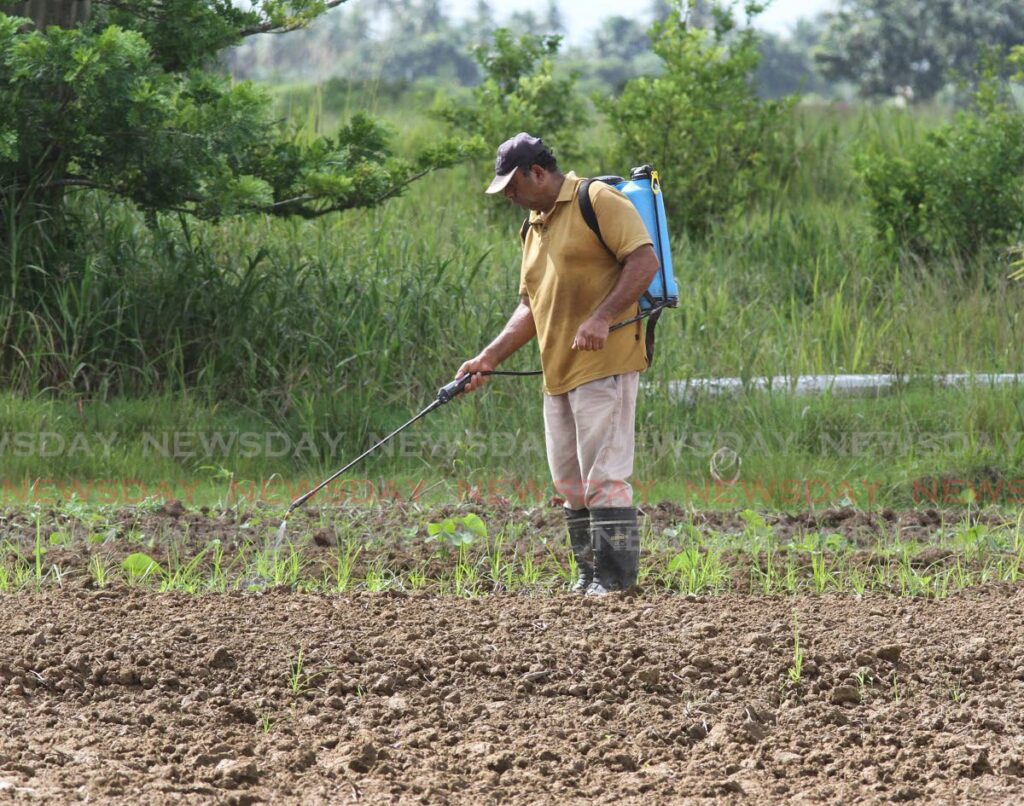Economist pushes for AI agri approach

With food prices soaring, economist Dr Vaalmikki Arjoon is making a push for the adoption of smart agriculture, using artificial intelligence, as is being done around the world, including China.
“We can have immeasurable increases in the availability and affordability of food locally with the right strategy.
"I want to challenge the authorities to make our food security our number one priority. Stop relying on the rest of the world to feed us for a change.
“A major part of any strategy to achieve this as quickly as possible, is to implement smart agriculture. The problems may seem insurmountable but the possibilities of what we can achieve are enormous.”
Pointing to the close relationship with China, Arjoon said instead of always relying on that country for financing, the Government could approach China to provide Trinidad and Tobago with some of the smart technology as this initiative will require considerable investment by the state and private sectors to train farmers.
“So at least in the early stages we don’t have to spend a lot of money in purchasing technology and we can start the training programs for farmers as early as possible.
Addressing the handing over ceremony of the Rotary Club of Penal at Doc’s Ranch, Phillipine last Wednesday, Arjoon said change has to come as TT’s approach to agriculture has not worked.
In the last ten years, he said, the state has spent $536 billion but only $11.2 billion or 2.1 per cent was allotted to agriculture.
“Is it any wonder that we keep relying on the rest of the world to feed us? We call ourselves an independent nation, but how independent are we if we continually rely on the rest of the world to feed us?
“If we are serious about ensuring our own food security in the shortest possible time frame, then we need a paradigm shift in our approach to agriculture. We have to move away from the traditional means of farming and start investing in precision agriculture practices or smart agriculture.
“What I am talking about is where farmers apply new technologies like artificial intelligence, 5G, drones, smart collars for their livestock, all with the aim of substantially increasing agricultural production, in the shortest possible window and in a cost-effective manner.”
He called on the audience to envision farmers using drones to monitor and assess the health of their crops and spray insecticides across their fields.
“On average, one drone should be able to spray farm lands the equivalent of at least 20 football fields in less than a day. This is the level of productivity we are talking about.
“Of course, the drone can also restrict praedial larceny, which is a major problem in the agricultural sector. “
Smart crop sensors, he said, can periodically check the soil moisture and provide information on the correct amount of water, nutrients and fertilizers the plants need, areas that are affected by pests.
“All this information is sent as real time data to the farmer’s phone. With this information, there is less wastage as the farmer can then provide the precise amount of irrigation, fertilisation and fumigation needed for each plot, and he can do this using artificial intelligence devices.
“We can use smart collars as well to monitor the health of our livestock, when they are going to give birth, when cows are ready to give milk etc.
“These are just a fraction of the technology that if we were to adopt, could bolster our food crops production levels per acreage by a considerable amount. It will enhance the quality of these produce, lower the cost of our farming activities and mitigate a lot of the wastage in the farming process, especially water and energy wastage.”
An added advantage, he said, farmers can minimise their time in the fields as data gathered goes into cloud storage allowing them to monitor the entire process from any of their devices and use the data to upgrade their agricultural management.
Arjoon, a lecturer at the University of the West Indies (UWI) in the Finance, Department of Management Studies, braced the challenge of convincing farmers to move away traditional forms of agriculture and embrace the new advancements.
“But how much longer are we going to subject ourselves to this cycle of high international prices which are beyond our control? Every day, many households, especially the lower income ones are crumpling in the face of higher food prices at the supermarkets without a clue about where the extra money is going to come from to help them pay for items.
“At this stage, we really don’t have a choice – we have to make some radical changes if we want meaningful food security and a vital place to start is to push an agenda for smart agriculture.”

Comments
"Economist pushes for AI agri approach"